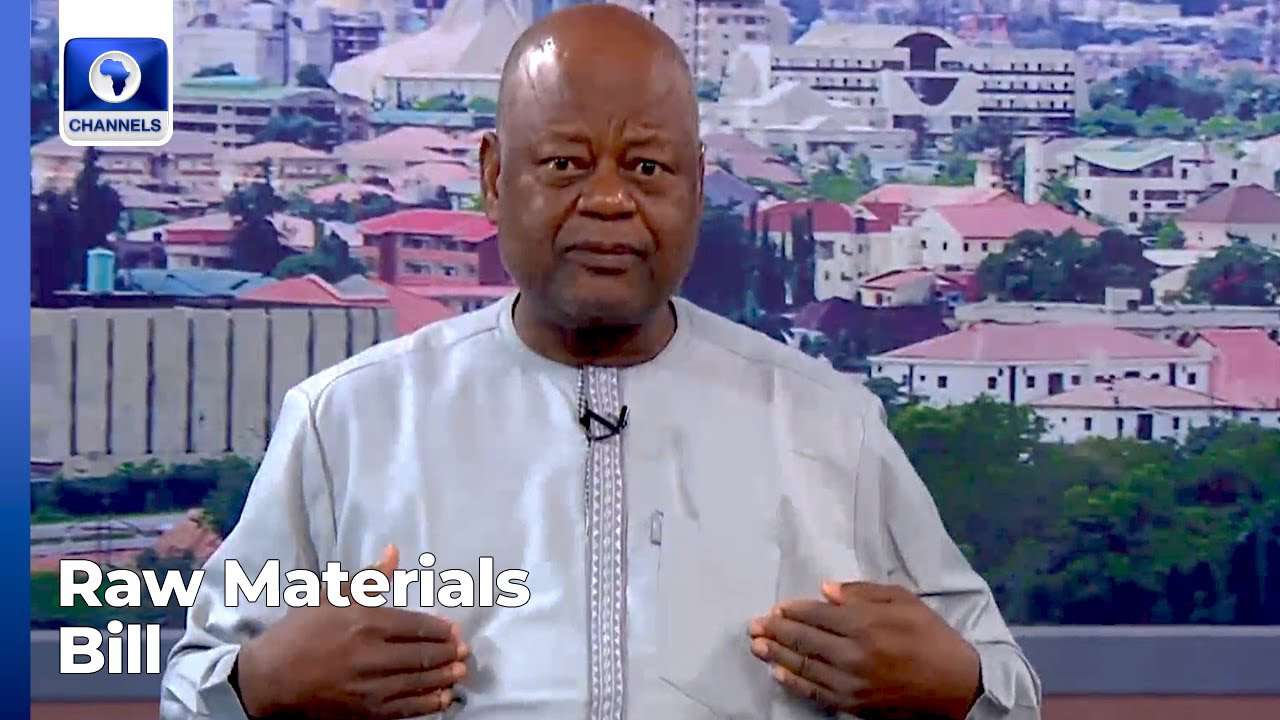Business
Nigeria must break fiscal dominance to build shock-resilient financial system, experts warn

Economic experts and senior monetary authorities have called for urgent harmonisation of Nigeria’s monetary and fiscal policies to build a resilient, efficient, and shock-proof financial system capable of supporting long-term growth.
They made the call at the 37th Seminar of the Finance Correspondents Association of Nigeria in Lagos, which convened central bankers, fiscal policymakers, economists, analysts, and journalists to discuss persistent macroeconomic pressures undermining stability.
Leading the technical session, Development Economist and Lead Consultant to the ECOWAS Commission, Prof. Ken Ife, presented what he described as a “strategic and disciplined blueprint” for aligning Nigeria’s fiscal and monetary frameworks.
He argued that the country’s recurring financial instability has largely been driven by fiscal dominance—a situation in which large deficits, heavy domestic borrowing, and dependence on Central Bank financing weaken monetary policy effectiveness.
“The major threat to financial stability in Nigeria is fiscal dominance,” he warned, explaining that the imbalance has fuelled inflation, triggered exchange-rate volatility, and placed undue strain on the banking sector.
Policy alignment a necessity
Prof. Ife said a resilient financial system must be capable of withstanding domestic and global shocks while efficiently mobilising savings, preserving market integrity, and ensuring a steady flow of credit to productive sectors. Achieving this, he added, requires eliminating the persistent rift between the Central Bank of Nigeria and the Ministry of Finance.
“Policy alignment is not a luxury; it is a macroeconomic necessity,” he said, noting that weak public financial management, deficit monetisation, and rising debt burdens continue to undermine monetary interventions.
Dangers of deficit monetisation
A major emphasis of his presentation was the problem of deficit monetisation—the Federal Government’s routine use of Ways and Means advances. Although the law limits such borrowing to 10 per cent of the previous year’s revenue and mandates repayment within the same fiscal year, government overdrafts have surged in recent years.
This, he said, injects large amounts of unsterilised liquidity into the economy, fuels inflation, erodes Central Bank credibility, and crowds out private-sector lending as government borrowing drives up interest rates.
Strengthening monetary policy
The seminar recommended that the Central Bank maintain an uncompromising focus on price stability, strong regulatory oversight, and effective liquidity management. Core proposals included preserving interest-rate independence, accelerating bank recapitalisation, strengthening prudential regulations, and extending supervision to non-bank actors such as fintechs, microfinance institutions, and crypto-related businesses.
Participants noted that recent reforms—improved FX market rules, rising foreign exchange inflows, and Nigeria’s exit from the FATF grey list—must be consolidated through stronger market-based liquidity tools such as Open Market Operations, rather than excessive reliance on high Cash Reserve Ratios.
Fiscal discipline required
On the fiscal front, speakers highlighted the need for efficiency, transparency, and strict discipline. They proposed a legal and operational ban on Central Bank deficit financing, strengthened enforcement by the Fiscal Responsibility Commission, and a shift toward longer-term, concessional borrowing.
Prof. Ife recommended widening the tax net, enforcing statutory levies such as the 15 per cent ad-valorem tax on imported petrol, and imposing sanctions for non-compliance with crude oil supply obligations. He also underscored the importance of optimising the Treasury Single Account to reduce idle funds and improve liquidity forecasting.
Coordination mechanisms
Experts further stressed the need to institutionalise coordination through a statutory Monetary-Fiscal Policy Coordination Council with mandatory reporting and periodic joint evaluations.
Such a body, they said, would help both sides agree on macroeconomic targets—including inflation, GDP growth, and debt thresholds—while aligning liquidity forecasts and preparing joint responses to shocks such as oil price collapses or global financial tightening.
“Economic stability cannot be achieved if monetary and fiscal authorities operate in isolation,” one senior Central Bank official noted.
Regulating digital finance
The discussions also covered emerging financial technologies, with calls for stronger regulation of fintechs, crypto assets, payment platforms, and cross-border capital flows. Stakeholders recommended deeper collaboration among the Central Bank, Securities and Exchange Commission, Nigeria Deposit Insurance Corporation, and Ministry of Finance to protect depositors and manage systemic risks in the digital financial ecosystem.
Measuring success
The seminar outlined key metrics for assessing progress in policy alignment: achieving single-digit inflation, improving private-sector credit relative to government borrowing, reducing exchange-rate volatility, deepening financial markets, and maintaining strong banking-sector ratios such as non-performing loans below five per cent and capital adequacy around 15 per cent.
Speakers maintained that transparency, consistency, and credible communication are essential for strengthening investor confidence and restoring effective monetary transmission.
Persistent challenges
Despite the strong proposals, the experts acknowledged continuing challenges, including large fiscal deficits, political interference, data gaps, global shocks, and uneven implementation of reforms across government agencies. Rising debt, volatile oil revenue, and limited fiscal space also remain structural obstacles.
Nonetheless, Prof. Ife insisted that progress is attainable. “Nigeria has the tools, the institutions, and the knowledge. What we need now is discipline, coordination, and political will,” he said.
With inflationary pressures, exchange-rate realignments, and growing debt concerns, the broad consensus from the seminar is clear: aligning fiscal and monetary policy is indispensable for restoring stability and securing sustainable economic growth.



